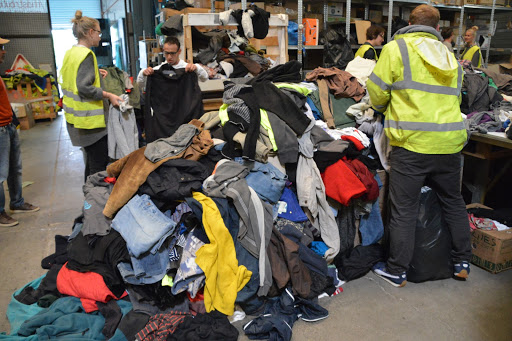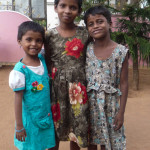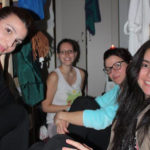For many years a large number of migrants have waited in Calais, in incredibly precarious conditions, hoping to cross the Channel. Antoine decided to spend his holidays with the humanitarian association Utopia 56 in order to help them. He shared with us the work he took part in there.
By Antoine / 09.03.2019
Antoine took this decision because he wanted to get out of Paris, to discover new things and especially to make himself useful! He had already been a volunteer with Utopia 56 in Paris (an organisation that gives aid to refugees), and he knew the association was also working in Calais. He thought: why not?
On the 24th October 2016, the refugee camp in Calais was destroyed by law enforcement. But that doesn’t mean to say there’s no-one there anymore. After all, migrants have tried to get to England since the fall of the Berlin wall.
The refugees are hiding in the region, largely sticking to groups of their own ethnicity. There is a sea of Eritreans, Afghans, Somalians…
Unfortunately, Calais is not the only place that has seen an influx of refugees; there is also the large Grande-Synthe camp next to Dunkirk, mostly made up of families. On 6th September 2018, it also underwent an eviction of more than a thousand people. But this isn’t really a solution to the problem, because they all come back to try to get to England, every time they are driven away.

Refugees in the rain ©Utopia56
But why are the refugees coming to Calais? The people Antoine shared a mobile-home with explained migrants come to Calais to be able to go to England. There it is much easier to work, rent a house, send your children to school while being undocumented.
They also told Antoine that some refugees have started their lives there, had worked for years and then one day the police showed up, asked to see their papers and sent them back where they came from: which is to say, on the other side of the world, where they knew no-one and wasted no time leaving again to go back to England, braving all the dangers of the journey. Moreover, before reaching England, some had already tried to live or seek asylum in many European countries without success. Some also wanted to join family that already lived in England.
Charities in Calais In Calais, eight associations are based in a warehouse. They all do different work, such as providing food, education, access to healthcare. The co-ordination and co-operation between them is quite uncomplicated and they are all very compatible with each other. Because of this they have been able to pool their skills and facilitate communication between themselves.
Despite the large number of volunteers, Antoine found them all to be very professional. There were 120 of them when he was on site during summer, but in winter that number gets a lot smaller.
The volunteers in the warehouse do so many different things! Cooking, making tea, sorting donations, mending clothes, chopping pallets to give wood to refugees: the work is very varied.
It is on a scale of gigantic proportions: they made tea in 120 litre tanks all day long, 20 of the volunteers cooked 1,200 meals per day in a kitchen up to professional hygiene standards.
Each day, several different jobs were offered to Antoine and it was completely up to him to pick the ones he wanted to do. The warehouse also needs people with specific skills; people who know how to do something useful like knowledge of car mechanics, video editing, photography or hairdressing would all be a bonus to the warehouse! This is by no means an exhaustive list, and the warehouse is open to all suggestions!

Sorting donations ©Utopia56
Antoine tells us about the food and clothes distribution to refugees with Utopia 56.
The teams were made up of three to a van, accompanied by a team leader. There were five designated distribution points with hours for when distribution would take place.
During the day, the volunteers asked the refugees if everything was alright, let them use their generators to charge their phones, and offered hygiene kits and water. They talked, drank tea and played cards with them while their phones charged.
In the evenings, on top of what they did during the day, the volunteers handed out food cooked at the warehouse to them, and clothes. There was a team of coordinators who made sure their more specific needs were taken care of, such as sheltering vulnerable people, and ensured everything ran smoothly for the volunteers.

Food distribution ©Utopia56
Someone asked Antoine if he was not scared during his first distribution. His answer is: no not at all! Before his first time distributing, he attended training for three hours in the warehouse. His team leader explained his role to him before they left, what he should and shouldn’t do, and guided him throughout the distribution.
Utopia 56 first sends new volunteers to daytime distributions, because these are more straightforward, then moves them to the evening sessions. Antoine always tells: All in all, I’d say that doing distribution to everyone who comes out of the forest is quite overwhelming, but Utopia 56 takes good care of its volunteers.
The atmosphere with the refugees was great. It’s easy to make friends with them. First and foremost, the team leaders and field co-ordinators know them well and encourage getting to know the refugees.

Getting ready for distribution ©Utopia56
At the end of his stay, Antoine taught two Somalians how to play the card game Egyptian Ratscrew (la bataille corse) which they played together. Communication was quite simple, because the majority speak English or French at some level.
Antoine did a distribution one evening when it was raining and the atmosphere was less congenial. He could already see them getting angry with each other. According to ‘long term’ volunteers, you need nerves of steel to do distributions at night, in winter, in the cold and snow.
The police The French government is paid by the British government to prevent migrants from going to the UK. So the French police do everything to make migrants leave the region. The implementation of this policy includes demolishing different camps and a number of tactics to counter refugees, and also the volunteers that help them.
A report on this topic was published on the 7th August 2018. It is available in English (here) and French (here).
Despite these somewhat alarming facts, and CRS (French riot police) intervening in the case of an improperly-parked van in front of the warehouse, Antoine never heard anyone say “today I had a run-in with the police”. The only ones who really had trouble with the police were long-term volunteers who had more trickier, ‘delicate’ jobs.
What’s more, all the work the associations do is completely legal and should really be being carried out by the French state.

A peaceful distribution during the day. We are waiting for phones to charge while drinking tea ©Utopia56
The media The media isn’t talking about Calais anymore. Why? When the jungle was still there, the refugees were much more visible. Now they live hidden away out of fear of the police, but they’re very much still there! The government is pursuing a policy that intentionally makes refugees invisible.
Antoine’s experience Antoine loved the experience with the other volunteers. These were anywhere between 18 and 75 years old, and came from all over the place! They were English, Irish, Spanish, Italian, German, Czechs, Americans, Congolese and Indians. A funny anecdote is the American who came to visit France for three months: he heard all these people speaking English and never left!
Every morning, everybody met up in the yard for a little outdoor meeting with all the newest updates and information for that day, and also some stretches. Then, everyone went their own way to start their day’s work.
In the kitchen, music was turned up to full volume. Antoine washed reusable cups every morning with his Catalan team for a gentle start, then he joined another team. All the volunteers talked to each other fairly naturally. At midday, they ate the food made in their kitchens, the same food the migrants ate. They were good times of sharing and coming together.
In the evenings, everybody slept at the campsite in their mobile-homes. There were little parties here and there every night. They invited each other to eat at each other’s houses, it was very friendly. Antoine slept in a caravan with two British volunteers that had been there for over a year, and a girl from Hong Kong who had been there for 4 months. They were very welcoming to him!
Willingness to give your time to help others is an integral part of being a volunteer, so everybody helped each other. An example of this solidarity is a friend who every morning asked everybody in the warehouse whether they wanted a tea or coffee, and brought it to them.
Antoine came back from Calais with a lot of motivation! He took his volunteering back up at the Paris branch of Utopia 56. He then decided to join the emergency housing team, and then the association’s communication team, working from home on very varied tasks, such as organising information conferences in universities or organising meetings between future hosts and and our volunteers, or helping to design our new website. He also asked all his friends to organise Utopia 56 conferences in their schools to improve the association’s visibility.
Here are the eight charities who run from the warehouse:
L’Auberge des Migrants
Refugee Community Kitchen
Help Refugees
Mobile Refugee Support
Refugee Women’s Centre
Refugee Info Bus حافلة المعلومات للاجئين مسیر راهنمای پناهندگان
SALAM Nord/Pas-de-Calais
UTOPIA 56 (who Antoine came to work with in Calais)



12. March 2019
Author Antoine (France), thanks so much for the post.Really thank you! Great.